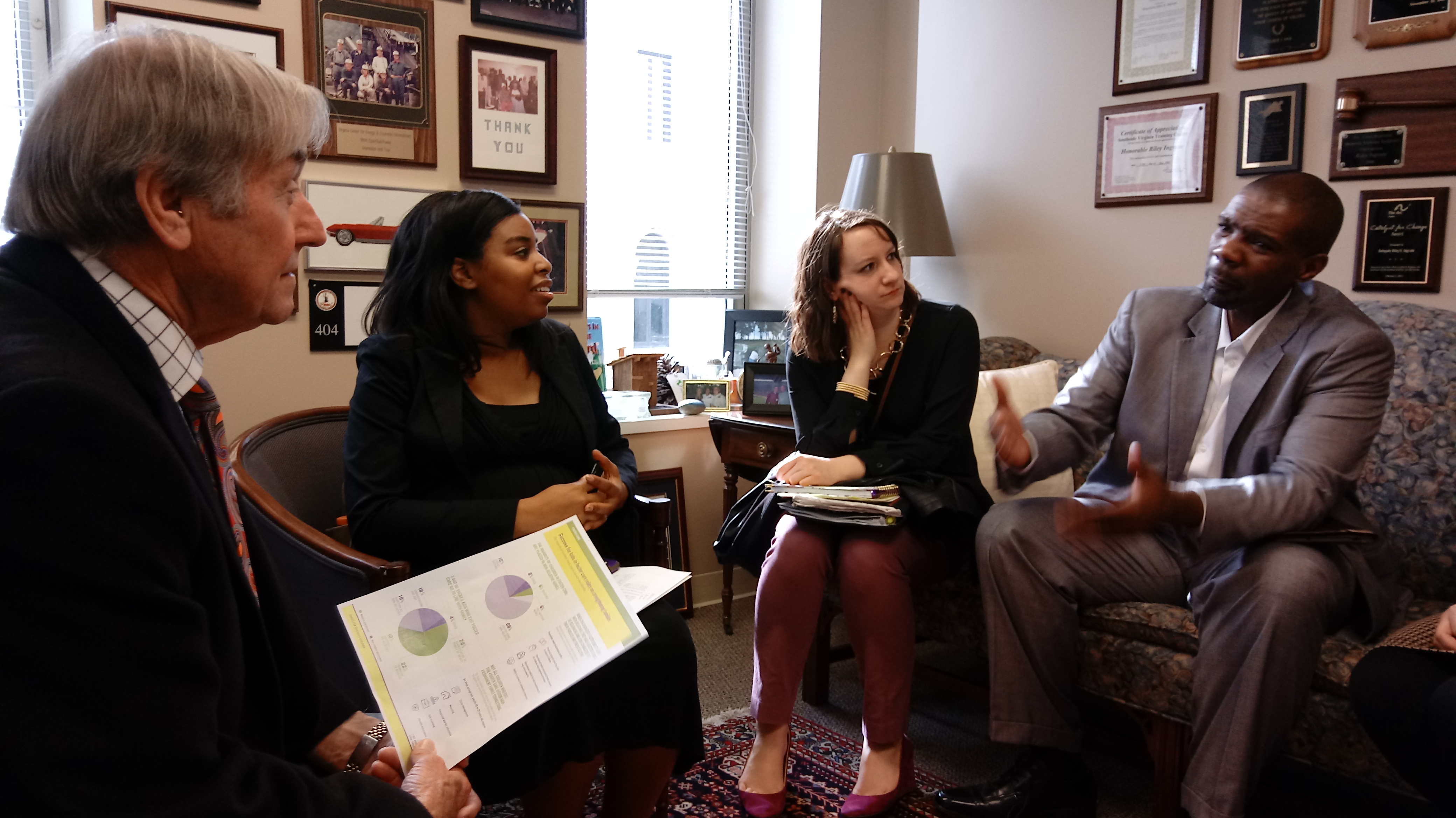

Carl Price recalled lying in bed at age 14 thinking he was going to die.
“Dying from the cancer was my way out, my exit strategy,” he said. He thought it would provide welcome relief from a life filled with trauma.
For Carl, the hardest part wasn’t the fear of dying. It wasn’t thinking about the neglect he suffered as a result of his father’s incarceration and his mother’s drug addiction. It wasn’t moving from one foster home to another, sometimes encountering abuse along the way.
“The hardest part was holding onto my humanity,” Carl said, “because the people who were supposed to care for me didn’t.”
Fortunately, Carl’s middle school principal and wife eventually took him in and provided a stable, loving home where he thrived and recovered from cancer. But much of Carl’s ordeal could have been avoided had Maryland, where Carl lived at the time, had a kinship care program.
“I had family willing to take me in,” Carl said, “but they didn’t have enough money by Department of Social Services standards.” So instead, Carl found himself floundering in the foster care system.
Stories like Carl’s point to the need for Virginia to pass legislation to create a kinship guardianship assistance program (KinGAP) to facilitate child placements with relatives and ensure permanency for children for whom adoption or being returned home are not appropriate options.
Voices and our partners at Virginia Poverty Law Center coordinated the Jan. 22 Kinship Care Advocacy Day in support of SB 44 (Barbara Favola-D), SB 636 (Siobhan Dunnavant-R), HB 1333 (Emily Brewer-R), and HB106 (Karrie Delaney-D). These bills contain eligibility criteria for the KinGAP, payment allowances to kinship guardians, and requirements for kinship guardianship assistance agreements.
Voices policy analyst Allison Gilbreath and executive director Margaret Nimmo Holland steered KinGAP advocates through the labyrinthine Pocahontas Building to meetings with delegates, senators, and legislative aides. The advocates shared their stories to give lawmakers fodder for policy and budget debates.
Sonji Gall said she and her husband are raising their grandson because their daughter, a Navy veteran, suffers from mental illness. “She got evicted from her apartment right before Thanksgiving,” Sonji said. “She wanted her son back, but we said a three-year-old needs stability—he can’t be living on the street.”
Like many caring for their grandchildren outside the formal foster care system, Sonji and her husband receive no financial support from the state.
Chloe Edwards, Director at the foster care and adoption nonprofit Connecting Hearts in Virginia, told a story of her own experience in kinship care. One of a set of triplets, Chloe said, “My grandparents, who at the time were 76 and 78, took in my sister and me when we were 15. Had the financial assistance this bill provides been available at that time, my sister and I wouldn’t have been separated from our brother.”
The bill also provides supports, such as trauma-informed services, that her grandparents could have used to help Chloe and her siblings address the trauma they experienced living with an abusive mother, Chloe said.
“Kinship care is often the best solution for keeping kids from entering foster care or getting them out of foster care,” said Christy Horsley, advocate manager for Court Appointed Special Advocates (CASA) of Central Virginia.
“We need to provide these families with all the help they need to care for these kids. Families are stepping up even when they have limited resources. We can’t let them drown!”
Carl agreed. “If we invest a small amount of dollars on the front end to support placements of children with their biological families, the kids will have more stable lives and grow up to be productive citizens who pay into the system, instead of being a drain on the system by needing ongoing support throughout their lives,” Carl said.
Voices thanks all the advocates who spoke in support of KinGAP yesterday. Here’s to passing a KinGAP bill this year!
Check our blog for weekly updates on our foster care advocacy work in the 2018 General Assembly session.
Read our foster care talking points.
Read More Blog Posts